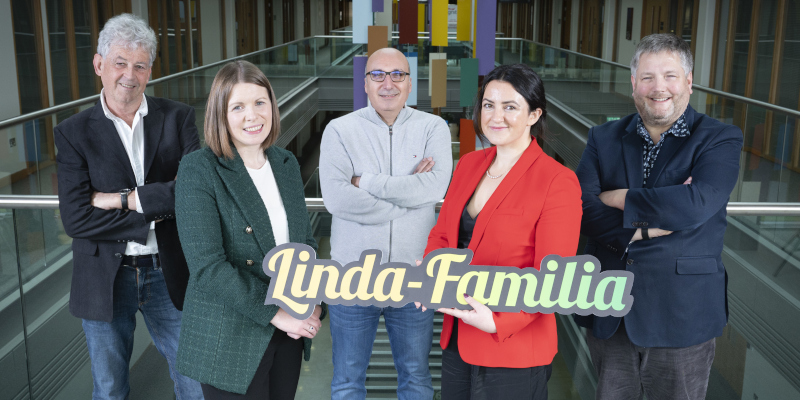
Enhancing Maternal and Child Health with Digital Innovation in Ireland and Africa
University College Cork (UCC) is at the forefront of integrating digital health solutions to improve maternal and child health outcomes, both locally and globally. Recent initiatives, particularly through the Horizon Europe funded project LINDA-FAMILIA, exemplify how innovative technology can tackle persistent health challenges such as high maternal and child mortality rates in sub-Saharan Africa. For healthcare professionals, policymakers, and researchers interested in digital health’s potential, UCC’s work provides valuable insights into scalable, sustainable solutions to some of the world’s most pressing health issues.
UCC’s Role in Pioneering Digital Health Projects like LINDA-FAMILIA
University College Cork’s INFANT Research Centre leads the €4.9 million LINDA-FAMILIA project aimed at transforming maternal and child health services in East Africa. This project leverages the power of open-source digital platforms, specifically DHIS2, to replace paper-based records with integrated, real-time health data systems. The initiative aims to address the fragmented health information infrastructure that hampers timely decision-making and effective care delivery in low-resource settings.
What sets UCC apart is its collaborative approach, bringing together partners from Ireland, the UK, Norway, Ethiopia, Rwanda, Tanzania, and Uganda. This diverse consortium combines global expertise with local knowledge to develop tailored digital solutions that are both effective and sustainable in the regions they serve. The project emphasizes capacity building and sustainable integration into national health systems, setting a model for similar initiatives worldwide.
The Impact of Digital Health on Maternal and Child Mortality in Africa
The LINDA-FAMILIA project addresses a critical health disparity: in 2020, sub-Saharan Africa accounted for 70% of maternal deaths globally, with infectious diseases like HIV, malaria, and sepsis being leading causes. The reliance on paper records and siloed data systems has historically hindered early detection and timely intervention, resulting in preventable tragedies.
By implementing interoperable digital health systems, UCC aims to enable health providers to access accurate, up-to-date data on infectious diseases and immunizations. Such information facilitates prompt, data-driven clinical decisions, enhances disease surveillance, and supports targeted public health interventions. The project also adopts the DHIS2 platform, which is well-suited for low-bandwidth environments, ensuring that even areas with unreliable internet connectivity benefit from digital transformation.
Scalable and Open-Source Solutions for Global Health
One of the key strengths of UCC’s approach is the use of open-source software, making the solutions cost-effective and adaptable. The DHIS2 platform is already used extensively worldwide and allows for customization to meet specific regional health challenges. Once established, these systems can be scaled to other regions and incorporated into national health strategies, paving the way for wide-reaching improvements in maternal and child health outcomes.
Building on Past Successes and Ensuring Long-Term Sustainability
The LINDA-FAMILIA project draws upon the ULTRA Project’s achievements, where UCC collaborated with Tanzanian partners to develop an electronic registry system for maternal and child health. This initiative demonstrated how digital records could replace cumbersome paper systems, significantly improving data accuracy and availability.
Furthermore, the project honors the legacy of Professor Christopher Redman, whose pioneering work in maternal health laid the groundwork for emerging digital interventions. UCC also emphasizes capacity building by training local health workers and integrating digital tools into existing health infrastructure, ensuring lasting benefits beyond project timelines.
Global Significance and Future Directions
UCC’s work in digital health is a testament to how academic institutions can influence global health policies. The project supports the United Nations Sustainable Development Goals by strengthening health systems, reducing maternal and child mortality, and promoting equitable healthcare access.
Looking ahead, UCC plans to expand these digital solutions, fostering collaborations across continents and advocating for policies that support digital health adoption in low-resource settings. The successful deployment of scalable, open-source health information systems in Africa can serve as a blueprint for addressing health disparities worldwide.
Conclusion: A Call for Collaboration and Innovation in Global Health
The advancements made by University College Cork exemplify how academia, technology, and international collaboration can converge to save lives and improve health outcomes. For professionals and organizations committed to advancing maternal and child health, engaging with such digital health initiatives offers promising avenues for impactful change.
For those interested in exploring innovative health solutions or participating in ongoing research efforts, consider connecting with UCC’s research centers or pursuing further education in digital health and public health strategies.
Learn more about UCC’s research and initiatives in digital health here.

